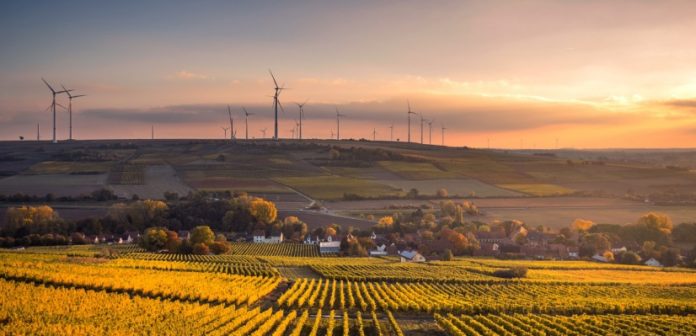Beata Javorcik, chief economist at the European Bank for Reconstruction and Development (EBRD), said ahead of the release of the bank’s annual transition report that the green transition in emerging Europe must be fair if reforms are to be sustainable, bne IntelliNews reports.
Energy transition is a politically challenging issue in most countries in the region, given the high level of coal consumption in a number of countries. At the same time, since the outbreak of war in Ukraine, there has been a renewed commitment to investing in renewable energy to improve energy security. Javorcik said:
“The overarching message from our report is the importance of a just transition. If there is one lesson we learned from working 30 years in transition economies, it is that reforms will not be sustainable unless they have broad-based support.”
According to the report “Transition 2023-24: Transitions Big and Small”, in the coming decades, some sectors, such as the production of raw materials needed for the green transition, will expand significantly, while others will shrink dramatically.
Countries that are already major producers of feedstocks for solar energy and fuel cells – the Czech Republic, Morocco, Turkey and Tajikistan – will benefit.
Access to such raw materials is essential for the development of green and digital technologies. However, it takes a long time to establish additional mines and processing facilities. Meanwhile, according to Javorcik:
“There is an immediate opportunity related to services. At the moment many companies are looking at their carbon footprint, and discovering that the outsourcing of IT services is associated with a lot of CO2 emissions. Outsourcing ICT services to India in particular is much more CO2 intensive than outsourcing to Eastern Europe. The sectors that are likely shrink or need to adjust are quite prominent in our countries of operation.”
In the labour market, the growing green economy creates an increased need for workers with green skills. However, at the same time, existing jobs in the most polluting production sectors will be cut in some regions. Moreover, low-skilled workers are often highly sceptical of environmental reforms.
In most of the countries surveyed in the EBRD study, 75 per cent of respondents believe that climate change will seriously affect today’s children, with 63 per cent of respondents confirming the existence of climate change. About half of all survey participants also said they were concerned that insufficient action to combat climate change is being taken. About two-thirds of respondents are concerned about biodiversity loss, extreme weather, air pollution, natural disasters, rising temperatures, the spread of disease and pollution.
At the same time, respondents show little willingness to bear the economic costs of switching to green practices. Only 43% of respondents are willing to prioritise environmental protection, even if it comes at the expense of economic growth and jobs. Between 37 % and 43 % agree to pay higher taxes to combat global warming, prevent biodiversity loss or reduce/prevent pollution. Javorcik noted:
“While most people in transition countries think climate change is real and it will severely affect the children of today, fewer people are willing to pay to address the climate emergency. The success of the green transition will depend on winning the hearts and minds of those people.”
Climate change, geopolitical tensions and technological advances are significantly altering the landscape of global supply chains. This is one aspect of the green transition.
The current state of ecology demands an end to global warming. In order to limit global warming to 1.5°C, it is necessary to introduce clean technologies to decarbonise electricity supply, electrify various economic sectors and expand the use of low-carbon hydrogen. At the same time, the importance of digital technologies in various business sectors is increasing.
To achieve this, green and digital technologies require a variety of critical raw materials. The report notes that production of these materials is currently highly concentrated in certain countries, with few if any substitutes available.” China dominates the extraction and processing of many critical raw materials, from germanium to lithium, which increases supply chain risks in the transition to a green economy.”
The relevance of these issues is growing against the backdrop of geopolitical tensions related to the war in Ukraine, as well as the ongoing trade war between the US and China. Javorcik added:
“A retreat from globalisation may endanger the success of the green transition, which is heavily reliant on minerals. 30% of global exports of critical inputs are now under export restrictions; 10 years ago that was just 3%. Production of many critical raw materials is concentrated in China. If geopolitical tensions lead to a retreat from globalisation and escalation of export restrictions, this can jeopardise supply of the critical raw materials needed for the green transition.”
The report emphasises that the breakdown in trade and financial ties between Russia and Western countries has intensified since the outbreak of war in Ukraine in 2022. Non-aligned countries are increasingly using alternative currencies in cross-border transactions, challenging the dominance of the US dollar. Changes in trade patterns reflect a growing emphasis on reshoring and near-shoring to shorten supply chains and mitigate risks associated with shortages of key inputs.
